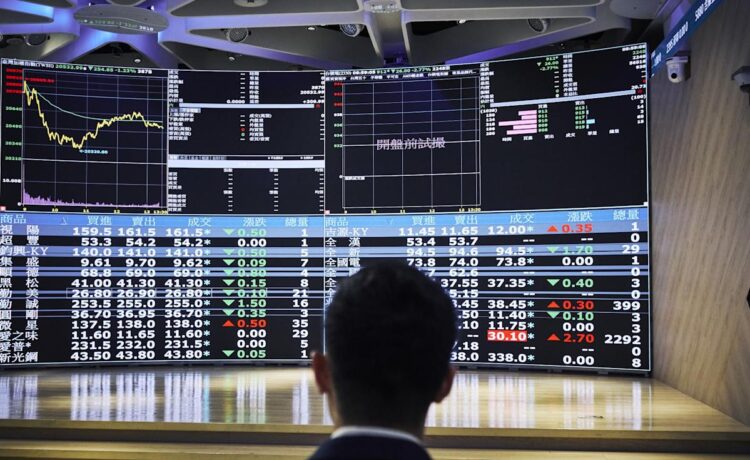(Bloomberg) — A wild divergence in Taiwan’s cross-border capital flows in the second quarter is raising the prospect of higher volatility in the local dollar.
The island’s residents dumped the biggest amount of foreign securities since the financial crisis in 2008, while global funds ramped up holdings of Taiwan’s assets to a record high in the same period, second-quarter balance of payments data released by the central bank on Wednesday show. Corporate investments abroad also soared.
Most Read from Bloomberg
Erratic movement of capital raises the risk of currency volatility and may hurt Taiwan’s economy that’s already facing headwinds from US President Donald Trump’s tariffs. A stable exchange rate has boosted Taiwan’s exports and enhanced the competitiveness of its world-leading chipmakers like Taiwan Semiconductor Manufacturing Co.
If tariff talks go well and Taiwan’s export momentum remains strong, while at the same time funds seek overseas opportunities again, more capital flows will be generated, said Woods Chen, chief economist from Yuanta Securities Investment Consulting.
“Increased capital flows in and out of Taiwan can potentially result in greater exchange rate volatility,” he said.
Taiwanese residents’ net foreign securities investments decreased by $7 billion in the second quarter, the biggest drop since 2008.
This shift indicates that “some funds have been repatriated to Taiwan, which is quite rare and usually only occurs during extreme market volatility such as a global financial crisis,” said Khoon Goh, head of Asia research at Australia & New Zealand Banking Group.
He noted that the capital inflow observed last quarter was likely driven by the intense market fluctuations caused by uncertainties over US tariffs, along with the rapid appreciation of the Taiwan dollar.
Taiwan’s currency posted the biggest two-day gain since the 1980s in May as exporters rushed to sell the greenback, partly on expectations the authorities will allow it to strengthen to help reach a trade deal with the US.
Foreign investments into Taiwan’s assets rose by a net $14.1 billion in the second quarter, the most on record. The main driver was foreign investors increasing their holdings in Taiwanese stocks.





